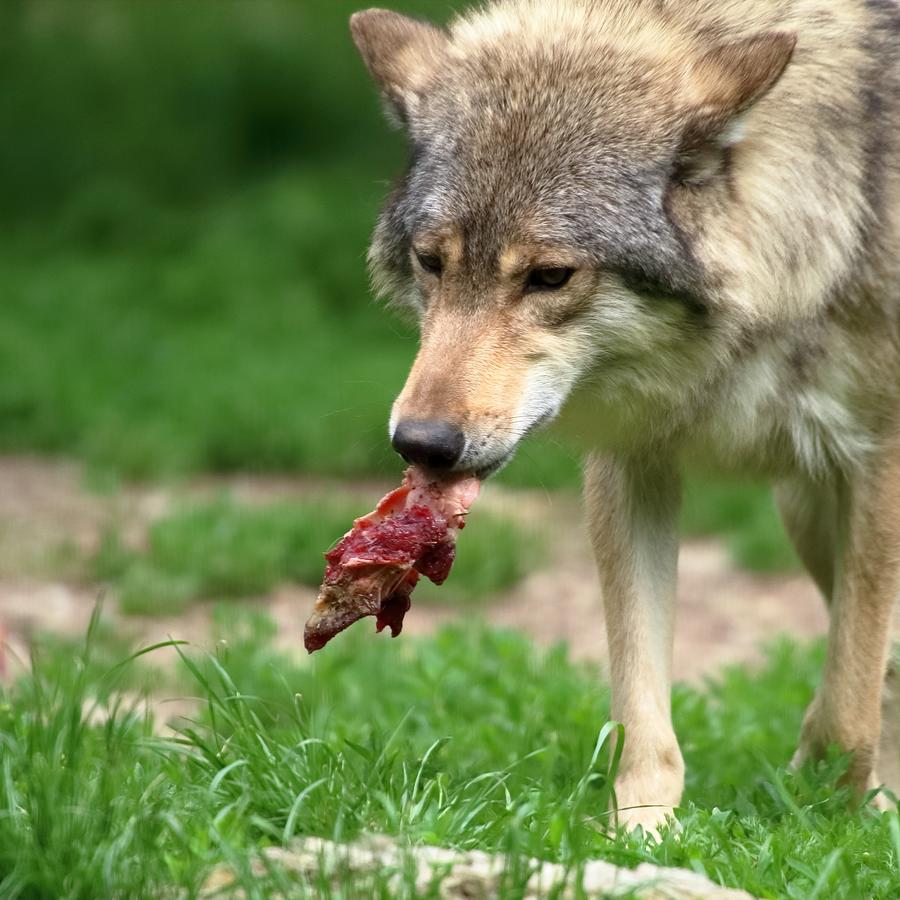Wolves are carnivorous animals that consume any kind of meat, including carcasses that have been left on the ground for days.
They often return to the same kill multiple times, eating decomposing corpses and rotten meat that contains harmful parasites. Therefore, it is important to cook wolf meat properly before eating it.
Overview of eating Wolf Meat
Wolf meat is a popular food source around the world. It can be prepared in a variety of ways and serves as a nutritious meal.
It is important to cook wolf meat properly, as it can carry bacteria that may be harmful. The best way to prepare wolf meat is by grilling, slow roasting, or braising it.
The taste of wolf meat can vary depending on the age and diet of the animal. Young wolves have meat that tastes similar to chicken, while mature ones are closer to pork. Wolves that live in cooler climates produce tender and tastier meat.
Culinary uses and traditional dishes
Wolf meat is considered a delicacy and has many culinary uses. It is often cooked in soups, stews, and braises.
Wolves eat a variety of foods, including mice and rabbits. They also hunt small prey, such as squirrels and skunks.
It is safe to eat wolf meat as long as it is properly prepared. However, it should be consumed with caution and respect for cultural values.
In addition to its nutritional value, wolf meat has a unique flavor that is not found in other animal meats. It can be prepared in a variety of ways, from roasting to smoking and barbecuing.
Availability and market trends
Wolves are not seen as a regular meal almost anywhere in the world. This is due to the fact that wolf hunting is illegal in most parts of the world.
This makes wolf meat expensive and difficult to obtain. It also has a reputation for not being the best-tasting meat around.
Ranchers don’t want wolves on their land because of their ability to prey on livestock, which can cause significant financial losses. This is especially true in areas where wolves are prevalent.
People also don’t consume wolf meat because it isn’t readily available on the market. This is because wolf hunting is illegal in most parts of world, and it can be expensive to purchase. Moreover, wolf meat isn’t very flavorful and doesn’t have a pleasant smell.
Health benefits and concerns
Wolf meat is high in protein, low in fat and calories, and contains omega-3 fatty acids. These benefits make it a great choice for those looking to lose weight and improve their overall health.
However, some people are hesitant to eat this type of meat because they are afraid it might be harmful to their health. If you are interested in trying this type of meat, it is recommended to hunt down the animal yourself and ensure that it is killed safely.
In addition, wolves play a critical role in the balanced maintenance of ecosystems. They reduce the impact of large herbivores on landscapes, while also protecting rarer species. This helps conserve biodiversity, and promotes healthy environments for other wildlife as well.
Sustainability
Wolf meat is a source of protein that can be cooked and enjoyed in a variety of dishes. However, it is important to prepare it properly in order to avoid ingesting any parasites or bacteria.
Hunting wolves is not sustainable and it has significant negative impacts on their habitats. It also breaks packs and disrupts niches that wolves depend on to survive.
Wolves are a key player in the ecosystem, and their presence is critical for maintaining biodiversity. They prey on elk, deer and other ungulates and keep them from over-browsing the landscape.
Increasing wolf numbers can help control elk populations by reducing over-grazing, thereby allowing recovery of some ecosystem niches such as aspen groves. They can also halt erosion around rivers by encouraging beavers to remain on the land and keeping ungulates off of the banks.

